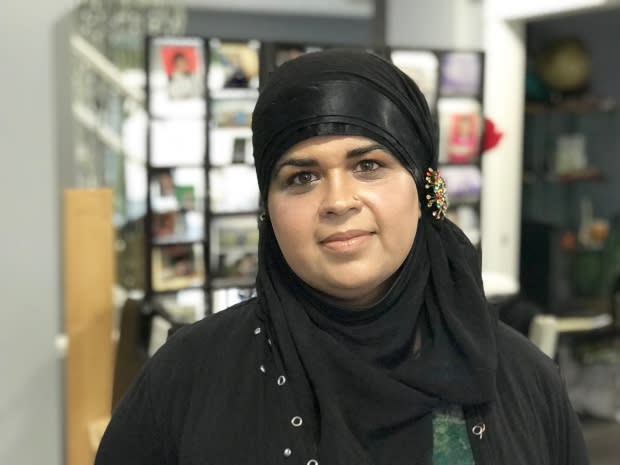Calgarians concerned Quebec's Bill 21 could lead to wider-reaching racism, bigotry
Saymah Chaudhry is one of thousands of Calgarians that wears a hijab, the head covering worn by some Muslim women.
She's one of many here feeling uneasy about Bill 21, which just passed in Quebec, and how it might impact religious minorities across Canada.
"Being a woman who chooses to wear this I do feel targeted and it's hurtful," said Chaudhry.
"It's something that's far away from Alberta, at the same time it's in Canada and that makes me nervous," Chaudhry said. "People will definitely use this as a way to police people and what they wear. I'm worried it could happen in other places. It's on people's minds."
The controversial religious symbols law passed on Sunday.
It bars public school teachers, government lawyers, judges and police officers from wearing religious symbols while at work.
That includes hijabs and niqabs, turbans worn by Sikh men and Jewish kippahs, even Christian crosses.
Muslims and Sikhs in Calgary say they're worried the bill could embolden far-right groups and boost already flourishing right-wing sentiment and Islamaphobia in Alberta.

"We are opposed to this bill, we condemn this bill," said Harcharan Parhar, a member of Calgary's Sikh community.
"Sikhs wear turbans and they can't remove that in public," said Parhar.
Parhar says as well as creating fear and unease among visible minorities in other provinces, the bill could tarnish Canada's global image as a welcoming and safe place for immigrants.
"People come to Canada because it's more open, for multiculturalism and freedom. All over the world people are coming and enjoying liberty and rights," said Parhar.
"You can practice whatever you want and that's the beauty of this country, but this is taking Canada and all of us backwards," he said.
The legislation also includes rules that would require citizens receiving a public service to uncover their faces for identification or security purposes.
That has Muslims in particular feeling singled out.

"It's mainly targeting Muslims. Muslim females who wear a hijab," said Dr. Mukarram Zaidi, secretary for the recently formed group Calgarians Against Racism, Violence and Hate.
"Muslim females, Sikh men and the Jewish community who wear the kipahh. We are taken back, we are in disbelief. It's unbelievable in this day and age that someone would tell them what they can wear," said Zaidi.
It … sends a message that minorities are not welcome. -Dr. Mukarram Zaidi, with Calgarians Against Racism, Violence and Hate
Zaidi says the bill could be seen as a wink to neo-Nazis and white supremacists in Quebec and across the country, creating a dangerous climate.
"Somebody like an Alexandre Bissonnette could take action, take a gun in his hand and innocent lives would be lost," Zaidi said.
"This sends a message across Canada that if this can happen in one province it can happen anywhere else," he said. "It gives them one win in one of the provinces and sends a message that minorities are not welcome."
The new law is already facing a constitutional challenge.
The National Council of Canadian Muslims and the Canadian Civil Liberties Association filed a motion in Quebec Superior Court seeking an injunction and want the law to be declared invalid.
Zaidi says his phone has been busy this week, with Muslims from around the city calling to offer help funding any challenges to the bill.
His group is also about to start a new study to address the roots of hate in Canada.


